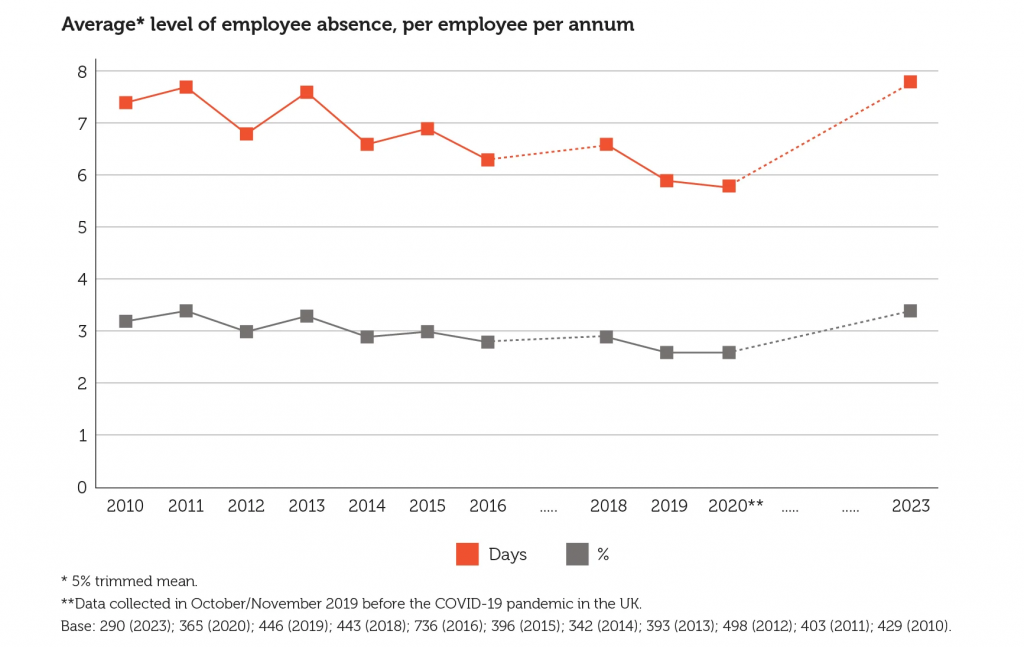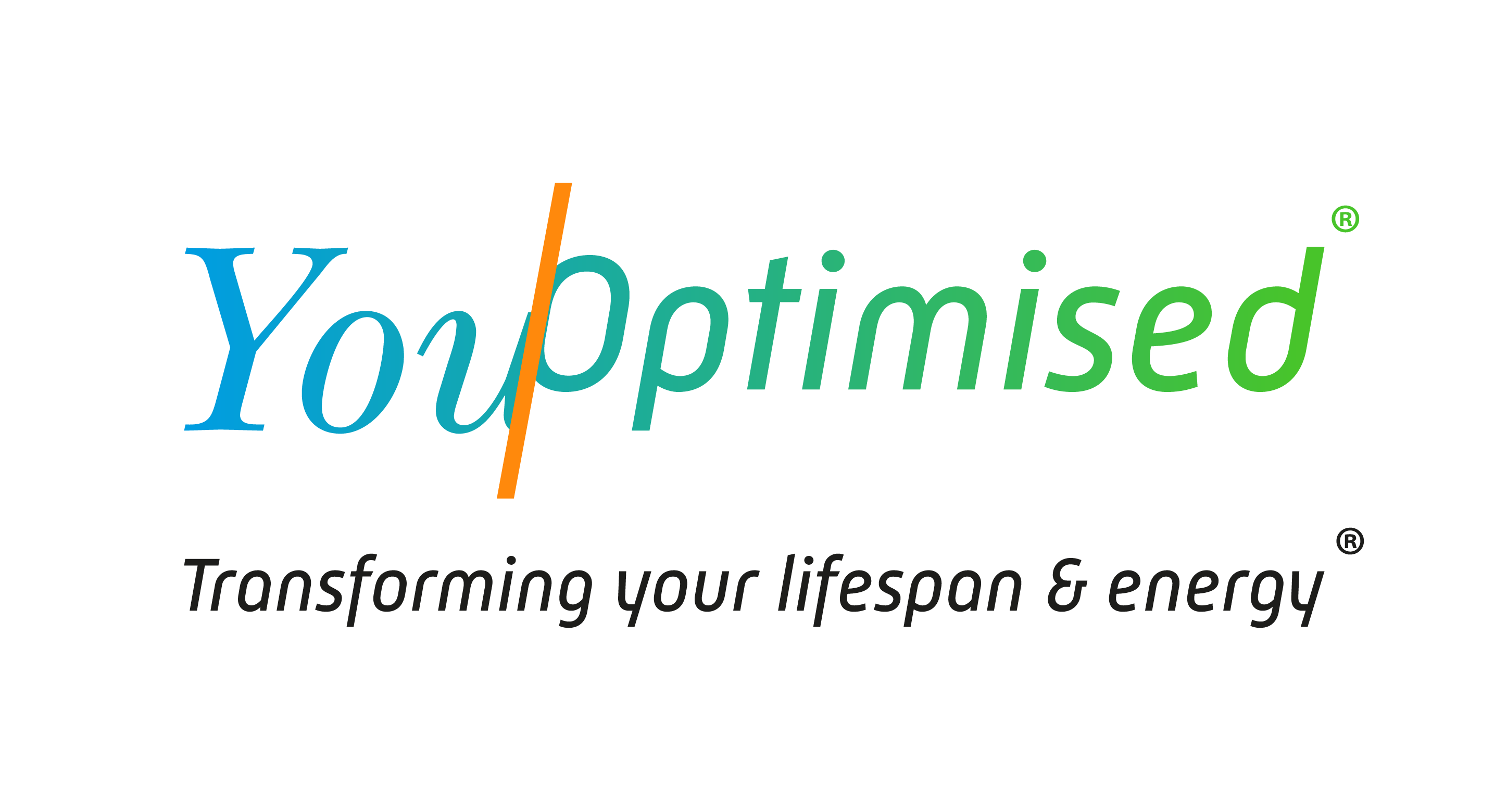The workplace landscape has evolved dramatically, underscored by the recent CIPD Health and Wellbeing at Work report, which presents critical insights into the state of employee health and organisational practices post-pandemic. This blog explores the substantial findings from the 2023 survey, emphasizing the need for strategic well-being initiatives.
A Rising Tide of Employee Absence
Employee absence has reached a record high, not seen in over a decade, with an average of 7.8 days lost per employee annually, up from 5.8 days before the pandemic. This increase is noted across all sectors, with public sector employees taking an average of 10.6 days off, significantly more than their counterparts in private sector services, who take 5.8 days. This surge signals organisations need to reassess their health management strategies.

The Focus on Mental Health
Mental health issues, including stress, necessitate ongoing attention. With 76% of organisations reporting stress-related absences primarily due to heavy workloads and management styles, there’s a clear call to action for enhancing workplace cultures and management practices. Additionally, 78% of organisations are actively trying to mitigate stress, with many adopting tools such as employee assistance programmes, mental health first aid training, and promoting flexible working arrangements.

Management’s Role in Employee Wellbeing
A key takeaway from the report is the critical role of management style and the capabilities of line managers in influencing employee well-being. Effective management can mitigate stress and enhance employee engagement and satisfaction. The report highlights the necessity of training and supporting managers to adopt well-being-focused leadership practices.

Evaluating Wellbeing Outcomes
While many organisations implement wellbeing programmes, fewer critically assess their impact. Continuous feedback and improvement are essential for refining strategies and enhancing employee well-being.
The Concept of ‘Good Work’
The CIPD advocates for ‘good work’—work that provides fair compensation and offers career and skill development opportunities, contributing to overall job satisfaction and personal fulfilment. This holistic view of what makes work ‘good’ is essential for cultivating environments that support employee wellbeing.
Governmental and Organisational Actions
Both governmental intervention and organisational initiatives are crucial for substantial progress in workplace health. The report calls for improved protection of workers’ health and rights. It stresses the need for the Health and Safety Executive to ensure employers comply with existing health and safety laws. Organisations are encouraged to take a proactive, systematic approach to workplace wellbeing, integrating it into their core operational strategies.
Towards a Healthier Tomorrow
As we move forward, it is clear that addressing the multifaceted aspects of employee well-being—mental, physical, and financial—requires a collaborative effort. By aligning management practices with comprehensive well-being strategies, businesses can enhance employee health and drive organizational success.
Organisations must consider these insights and integrate them into their human resources policies to build resilient, thriving workplaces. In an age where the workforce’s expectations are evolving rapidly, a commitment to employee well-being is ethical and a strategic imperative for sustainable growth.
Conclusion
The findings from the CIPD report highlight the complex challenges and diverse needs within today’s workplaces. Organisations must adopt a multifaceted approach to health and wellbeing that considers the varied aspects of employee life. As businesses navigate post-pandemic realities, focusing on comprehensive and inclusive health strategies will be key to building resilient, productive, and healthy work environments.
For a deeper dive into the data and strategic recommendations, the full CIPD Health and Wellbeing at Work 2023 report provides extensive insights and guidance.

